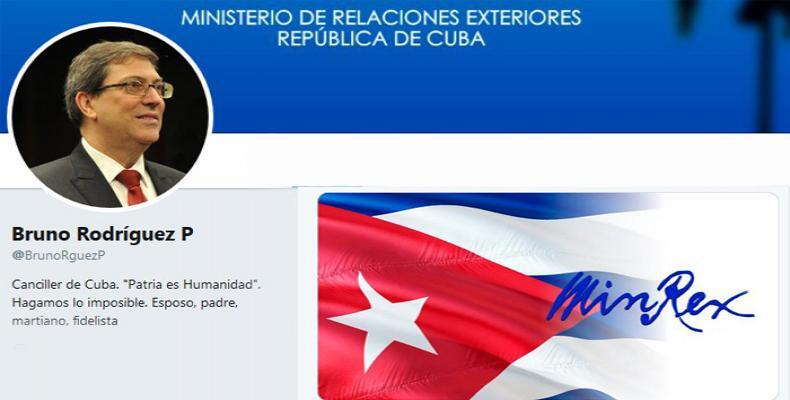Havana, February 12 (RHC)-- Cuban Foreign Minister Bruno Rodríguez has condemned attempts by the United States promote a resolution in the UN Security Council to pressure Venezuela into accepting humanitarian aid.
The Cuban diplomat called the move an “attempt to legalize” military aggression against the Bolivarian nation and the first step toward “humanitarian intervention.”
He noted that the resolution is aimed at supporting the ongoing coup against the Bolivarian Revolution and its leader, Nicolás Maduro, which escalated last month when parliamentarian Juan Guaidó proclaimed himself President, a move backed by Washington and several of its allies in America and Europe.
Meanwhile, Cuban President Miguel Diaz-Canel also expressed the island’s rejection of the measure which he described as a “tool for aggression and intervention,” in tweet.
The draft resolution calls for the “immediate start of a political process leading to free, fair and credible presidential elections,” based on alleged human rights abuses and despite democratic elections held last May, which saw Maduro voted in for a second term.
In order to pass, a Security Council resolution needs nine votes in favor and no votes against from any of the five permanent members: the U.K, U.S., Russia, France and China. Russia has also proposed an alternative text to the U.S. resolution, this after voting to block, along with China, a meeting on Venezuela initiated by the U.S. last month.
Cuba slams U.S. attempt to pressure Venezuela

Related Articles
Commentaries
MAKE A COMMENT
All fields requiredMore Views
- Cuba congratulates Dilma Rousseff on reelection to the BRICS Bank
- Presidential candidate Luisa González commits to the right to education, health and social justice in Ecuador
- International Criminal Court strongly censures Hungary for ignoring Netanyahu arrest warrant
- Cuban medical cooperation: A legacy of solidarity and humanism
- Women's Superior Basketball League will begin

